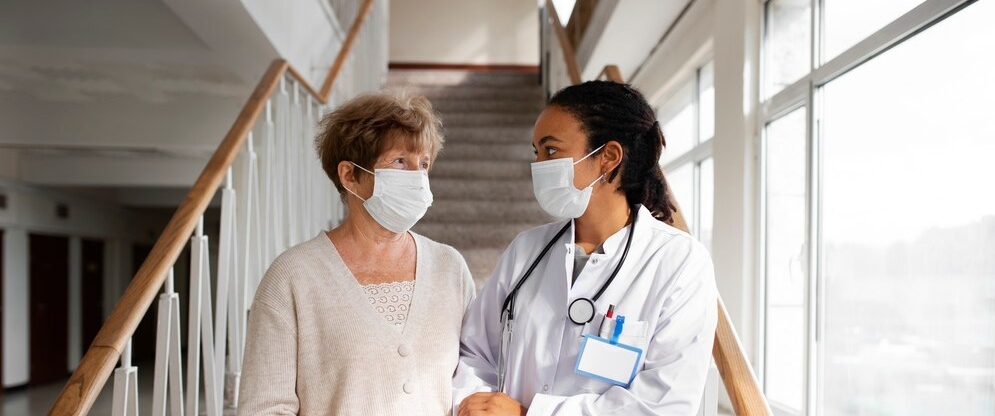Each and every day, our lungs are directly exposed to external factors in the environment around us. The immune system is constantly working to maintain homeostasis and healthy body function, all while maintaining lung integrity and optimize lung function. Exposure to harmful environmental factors and genetics cause conditions like asthma, chronic obstructive lung disease (COPD), idiopathic pulmonary fibrosis (IPF), pulmonary arterial hypertension (PAH), and occupational respiratory diseases, which affect millions of people around the world with minimal solutions presently available[1]. Immune dysregulation and inflammation are also key components of both infectious and noninfectious pulmonary diseases[3]. Indeed, the immune system plays the most critical role in maintaining lung health.
70%
Better Breathing Capacity
Patients report a 70% improvement in breathing capacity and respiratory endurance after regenerative therapies, enhancing daily quality of life.
60%
Reduction in Lung Inflammation
Clinical studies show that regenerative treatments achieve a 60% decrease in inflammation markers in the lungs, providing relief for chronic conditions such as asthma and COPD.
80%
Faster Recovery Rates
Patients with chronic respiratory diseases experience 80% faster recovery after regenerative treatments, reducing hospital visits and improving overall health.
2x
Faster Recovery Rates
Regenerative medicine enables patients to recover twice as fast compared to conventional therapies.
The Immune System
Guardian of Lung Health
Guardian of Lung Health

Years of Research
Rehealth lung treatments are based on 50 years of research and innovation in respiratory health solutions.

Success Rate
Rehealth lung therapies have an 85% success rate in improving breathing capacity and overall well-being.

Noticeable Results
Patients experience improved lung function within just 14 days of beginning Rehealth treatment.
MSC Therapy for Respiratory Health
Mesenchymal Stem Cell (MSC) therapy offers a revolutionary solution. With their ability to regulate the immune system, reduce inflammation, and promote lung tissue regeneration, MSCs tackle the core issues of respiratory diseases. Administered intravenously, MSCs target the lungs immediately, reducing edema, repairing damaged tissue, improving energy metabolism, and restoring pulmonary function. This cutting-edge therapy not only slows disease progression but also enhances overall quality of life, offering new hope to patients battling chronic lung conditions.








- Yen BL, Yen ML, Wang LT, Liu KJ, Sytwu HK. Current status of mesenchymal stem cell therapy for immune/inflammatory lung disorders: gleaning insights for possible use in COVID-19. Stem Cells Transl Med. 2020. 9.
- 2. Lloyd CM, Marsland BJ. Lung homeostasis: influence of age, microbes, and the immune system. Immunity. 2017. 46:549-61.
- 3. Postma DS, Rabe KF. The asthma-COPD overlap syndrome. N Engl J Med. 2015. 313:1241-9.
- 4. Ferreira Cruz F, Macedo Rocco R. The potential of mesenchymal stem cell therapy for chronic lung disease. Exp Rev Resp Med. 2019.
- 5. Wecht S, Rojas M. Mesenchymal stem cells in the treatment of chronic lung disease. Respirology. 21:1366-75.
- 6. Prockop DJ, Oh JY. Mesenchymal stem/stromal cells (MSCs): role as guardians of inflammation. Mol Ther. 2012. 20:14-20.
- 7. Le Blanc K, Mougiakakos D. Multipotent mesenchymal stromal cells and the innate immune system. Nat Rev Immunol. 2012. 12:383-96.
- 8. Akram KM, Samad S, Spiteri MA, et al. Mesenchymal stem cells promote alveolar epithelial cell wound repair in vitro through distinct migratory and paracrine mechanisms. Respir Res. 2013.14:9.
- 9. Fang X, Neyrinck AP, Matthay MA, et al. Allogeneic human mesenchymal stem cells restore epithelial protein permeability in cultured human alveolar type II cells by secretion of angiopoieti 1. J Biol Chem. 2010. 285:26211-22.
- 10. Paliwal S, Chadhuri R, Agrawal A, et al. Regenerative abilities of mesenchymal stem cells through mitrochondrial transfer. J Biomed Sci. 2018. 25:31.
- 11. Islam MN, Das SR, Emin MT, et al. Mitochondrial transfer from bone-marrow-derived stromal cells to pulmonary alveoli protects agains acute lung injury. Nat Med. 2012. 18:759-65.
- 12. Alcayaga-Miranda F, Cuenca J, Khoury M. Antimicrobial activity of mesenchymal stem cells: current status and new perspectives of antimicrobial peptide-based therapies. Front Immunol. 2017. 8:339.
- 13. Bernardo ME, Fibbe WE. Mesenchymal stromal cells: sensores and switchers of inflammation. Stem Cell. 2013. 13:392-402.
- 14. Srour N, Thébaud B. Mesenchymal stromal cells in animal bleomycin pulmonary fibrosis models: a systematic review. Stem Cells Transl Med. 2015. 4. 1500-10.




